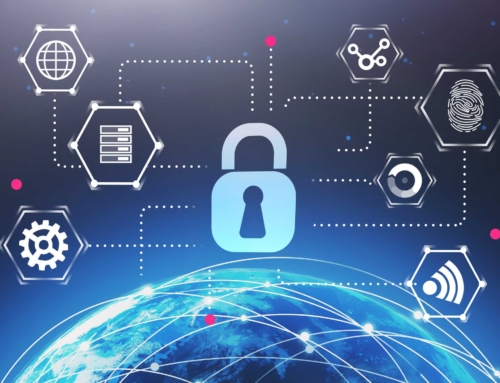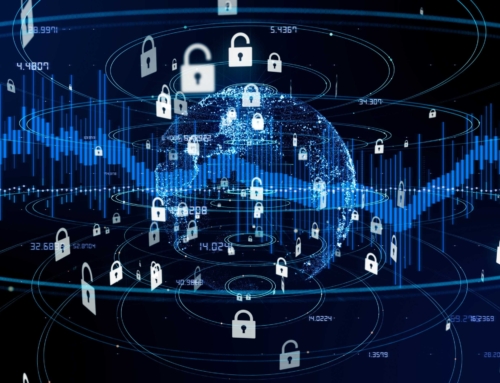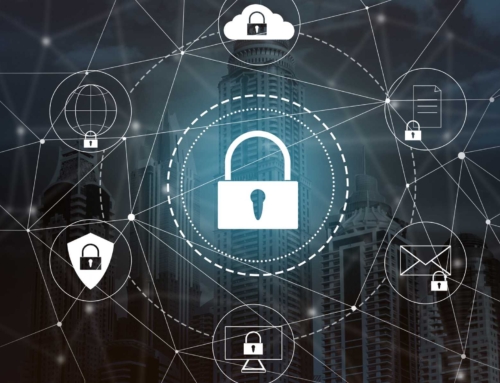Navigating Legal Compliance in Ransomware Recovery: Essential Factors
Understanding Ransomware and Its Legal Implications
Ransomware is a type of malware that encrypts a victim’s files, making them inaccessible until a ransom is paid to retrieve the decryption key. This type of cyberattack can paralyze businesses and compromise sensitive personal information. Navigating the aftermath of such an attack isn’t just about the recovery of data; it involves understanding the complex web of legal implications that arise. From potential data breach notifications to adherence to privacy regulations, our team at Alvaka is well-versed in the legal landscape that comes into play after a ransomware incident.
The Importance of Legal Compliance During Ransomware Recovery
As we guide you through your ransomware recovery journey, we emphasize the importance of legal compliance. Timely and proper action isn’t just operationally critical—it’s a legal mandate. Our compliance expertise ensures that the recovery process adheres to all relevant laws and regulations, mitigating further risks. Failure to follow the established legal protocols could lead to penalties, lawsuits, and loss of reputation, thereby magnifying the damages beyond the initial cyberattack itself. Trust us to manage the intricacies of legal compliance as we restore your operations to normalcy.
Navigating Ransomware Recovery with Home Litigation in Mind
Home litigation refers to the strategic utilization of legal measures and understanding to navigate the complexities of ransomware recovery while maintaining legal compliance. At Alvaka, we infuse our IT management and network services with legal acumen, ensuring that every recovery action aligns with the necessary legal framework. Employing such a comprehensive approach not only aids in effective recovery but also fortifies your defenses against potential legal repercussions. Recognizing the dynamic interplay between technical solutions and legal mandates is pivotal to overcoming the disruption caused by ransomware.
Key Considerations for Legal Compliance in Ransomware Recovery
Key considerations for legal compliance in ransomware recovery encompass a range of tactical and strategic decisions. It’s imperative to understand the local, state, and federal regulations that dictate the proper response to a ransomware attack. Our team at Alvaka ensures that the approach to recovering your systems is legally sound, which includes abiding by notification timelines for affected parties and data breach reporting requirements. We also focus on preserving evidence, which is a critical component of any potential legal actions down the line. By entrusting your ransomware recovery to us, you’ll have experts on your side who can navigate these complex considerations with transparency and diligence.
Key Considerations for Legal Compliance in Ransomware Recovery
Understanding Notification Requirements
We recognize the urgency of addressing legal compliance when we help our clients navigate through the complexities of ransomware recovery. One of the first considerations is understanding the notification requirements. Different jurisdictions may have varying laws concerning the timeline and manner in which affected individuals and the authorities need to be informed. We ensure that our recovery plans meet these statutory notification obligations promptly, thus upholding our commitment to transparency and responsibility.
Reporting to Regulators and Law Enforcement
Next, we turn our attention to reporting the ransomware incident to the appropriate regulators and law enforcement agencies. We understand the sensitive nature of these incidents and the importance of cooperating with regulatory bodies to not only comply with legal requirements but also to benefit from their expertise. Our approach is systematic, ensuring that reports are thorough, timely, and assist in broader efforts to combat cyber threats.
Preserving Evidence for Investigation
As we take steps towards remediation, preserving evidence is a key aspect of our process. Maintaining documentation and logs can be crucial for subsequent investigations and may hold significant legal implications. We go above and beyond to document the ransomware’s footprint and our remediation process, preparing for potential litigation or in-depth investigation with precise evidence management.
Compliance with Data Protection Laws
Data protection laws, such as GDPR for clients operating in the European Union or state-specific laws in the U.S. like the California Consumer Privacy Act (CCPA), require strict compliance during a ransomware crisis. We assist our clients in navigating these data protection frameworks, ensuring that the recovery process aligns with the legal standards for data security and privacy.
Maintaining Confidentiality and Attorney-Client Privilege
During ransomware recovery, it’s also vital to maintain confidentiality and protect attorney-client privileges. When working alongside legal professionals, we take attentive measures to ensure that sensitive communications and advice are handled with the utmost discretion. This approach safeguards our client’s legal positions and upholds the integrity of the recovery process.
- Ensure immediate and appropriate incident response to mitigate the impact.
- Address all legal requirements for reporting and notification without delay.
- Securely document all findings and steps taken during the recovery process.
- Align recovery efforts with the prevailing data protection and privacy regulations.
- Operate with professionalism to maintain the confidentiality needed throughout the recovery.
Advising Clients on Ransom Payments
We guide our clients through the challenging decision-making process regarding ransom payments. Our expert team advises on the implications of such actions, which can have legal and reputational repercussions. While our paramount objective is to restore our clients’ operations with minimal disruption, we are acutely aware of the legal landscape governing ransom payments and ensure that our clients are well-informed before proceeding.
Interpreting Cyber Insurance Policies
Finally, interpreting cyber insurance policies is a critical component of the recovery process. We meticulously review the fine print with our clients to ascertain what is covered and advise on the steps needed to submit a proper claim. Our experience positions us to advocate effectively on behalf of our clients, ensuring they receive the benefits their policies entitle them to, all while staying within the bounds of legal compliance.
Did you know that reporting a ransomware attack to regulators and affected parties within a specific timeframe is a legal requirement in many jurisdictions?
Key Considerations for Legal Compliance in Ransomware Recovery: Completing the Process
As we conclude our exploration of managing ransomware incidents, it’s crucial to underscore the significance of legal compliance in the recovery process. At Alvaka, we firmly believe that a meticulous and informed approach can significantly affect the outcome of such trying events. By emphasizing the key considerations for legal compliance, our clients can navigate the uncharted waters of ransomware recovery with more confidence and legal prudence.
Consolidating Ransomware Recovery and Legal Procedures
Recovery from a ransomware attack does not only involve technical remediation but also entails a series of legal obligations that must be fulfilled. Our experience underscores the importance of integrating ransomware recovery strategies with legal considerations to ensure a comprehensive and conformant resolution. We guide our clients in implementing steps that align with legal mandates, helping guard against further liabilities and ensuring that recovery efforts meet the highest standards of regulatory compliance.
Fostering Transparency in Recovery Operations
Transparency is pivotal during the recovery operation. Our team works diligently with clients to document all actions taken in response to a ransomware incident. This transparent approach aids in demonstrating due diligence and can be imperative in the event of any legal inquiries or proceedings. By maintaining clear records, we help businesses stand on solid legal ground while effectively countering the technical challenges posed by ransomware recovery.
Closing Thoughts on Ransomware Recovery and Legal Readiness
Mitigating the aftermath of ransomware involves more than just restoring data and systems; it requires a vigilant eye on the legal landscape. As we assist clients in bouncing back from these attacks, our priority remains to ensure that all legal aspects are thoroughly addressed. We stress the adherence to the key considerations for legal compliance in ransomware recovery as an integral part of our services. By partnering with Alvaka, businesses benefit from a robust recovery blueprint that extends beyond technical repair to embrace legal fortitude and foresight.
We understand that the prospect of ransomware attacks can be daunting, and recovery is often complex. However, businesses do not have to face these challenges alone. With our expertise in IT management, network services, and legal compliance, we stand ready to support our clients through each phase of the recovery process. The goal is to provide an effective and legally sound recovery, ensuring peace of mind for our clients and their stakeholders.
If your business encounters a ransomware event, remember that immediate, informed, and legally compliant action is paramount. Keep Alvaka in mind as your ally in these critical circumstances. Together, we can work towards a resilient and compliant resolution to the ever-growing threat of ransomware.
FAQ
What is ransomware and how can it affect my business? ▼
Ransomware is a type of malware that encrypts your data or locks you out of your system, demanding payment to restore access. If your business falls victim to ransomware, it could lead to operational disruptions, financial losses, and damage to your reputation.
What legal issues arise from a ransomware attack? ▼
Ransomware attacks may breach data protection laws and privacy regulations, potentially leading to legal actions against your company. You must consider reporting obligations and privacy concerns when handling these incidents.
Why is legal compliance essential during ransomware recovery? ▼
Legal compliance during ransomware recovery ensures that you follow laws and regulations, which can help mitigate additional liabilities and protect your company from further legal repercussions.
What is ‘home litigation’ and how does it assist in ransomware recovery? ▼
‘Home litigation’ refers to using legal action from your home jurisdiction to manage the legal aspects of ransomware recovery. This strategy can provide a structured approach to recovery while ensuring legal compliance.
How can failure to comply legally worsen the impact of a ransomware attack? ▼
Non-compliance can lead to increased regulatory fines, lawsuits, and damage to your business’s credibility. Therefore, it’s crucial to adhere to legal requirements throughout the recovery process.
What should be the first step for legal compliance after discovering a ransomware attack? ▼
The first step should be to consult with legal counsel to understand your legal obligations, such as notifying affected parties and reporting to regulatory bodies, ensuring that all actions are compliant with relevant laws.
Are there specific time frames for reporting a ransomware attack? ▼
Yes, specific laws and regulations may dictate strict time frames for reporting ransomware attacks to authorities and affected parties. Our legal team can guide you through these time-sensitive requirements.
How important is evidence preservation during ransomware recovery? ▼
Preserving evidence is crucial as it can assist in the investigation, support legal actions, and demonstrate compliance with legal obligations during the recovery process.
Should we communicate with law enforcement after a ransomware attack? ▼
Indeed, communicating with law enforcement is an important step. They can provide assistance and it’s often a legal requirement to report cyber crimes like ransomware attacks.
Can paying the ransom demand lead to legal issues? ▼
Paying the ransom may have legal implications, including violating sanctions laws. Consequently, it’s essential to seek legal advice before making any decisions regarding ransom payment.








 Smoke testing is a term used to describe the testing process for servers after patches are applied.
Smoke testing is a term used to describe the testing process for servers after patches are applied.  This is a basic cost calculator for you to compute your typical monthly cost for patching your servers, PCs, laptops, tablets and associated application software. It also forms the basis for you to begin calculating your Return on Investment for software patching, or for comparison with alternatives to the manual process of patching operating systems and application software—such as Patch Management as a Service, also known as Vulnerability Management as a Service.
This is a basic cost calculator for you to compute your typical monthly cost for patching your servers, PCs, laptops, tablets and associated application software. It also forms the basis for you to begin calculating your Return on Investment for software patching, or for comparison with alternatives to the manual process of patching operating systems and application software—such as Patch Management as a Service, also known as Vulnerability Management as a Service.